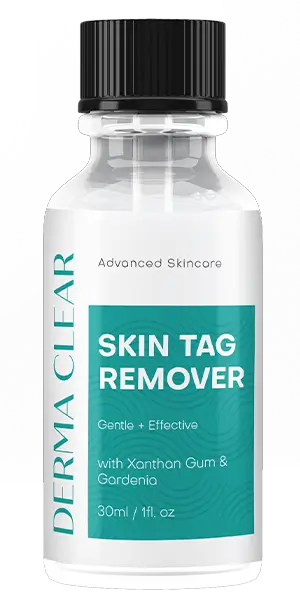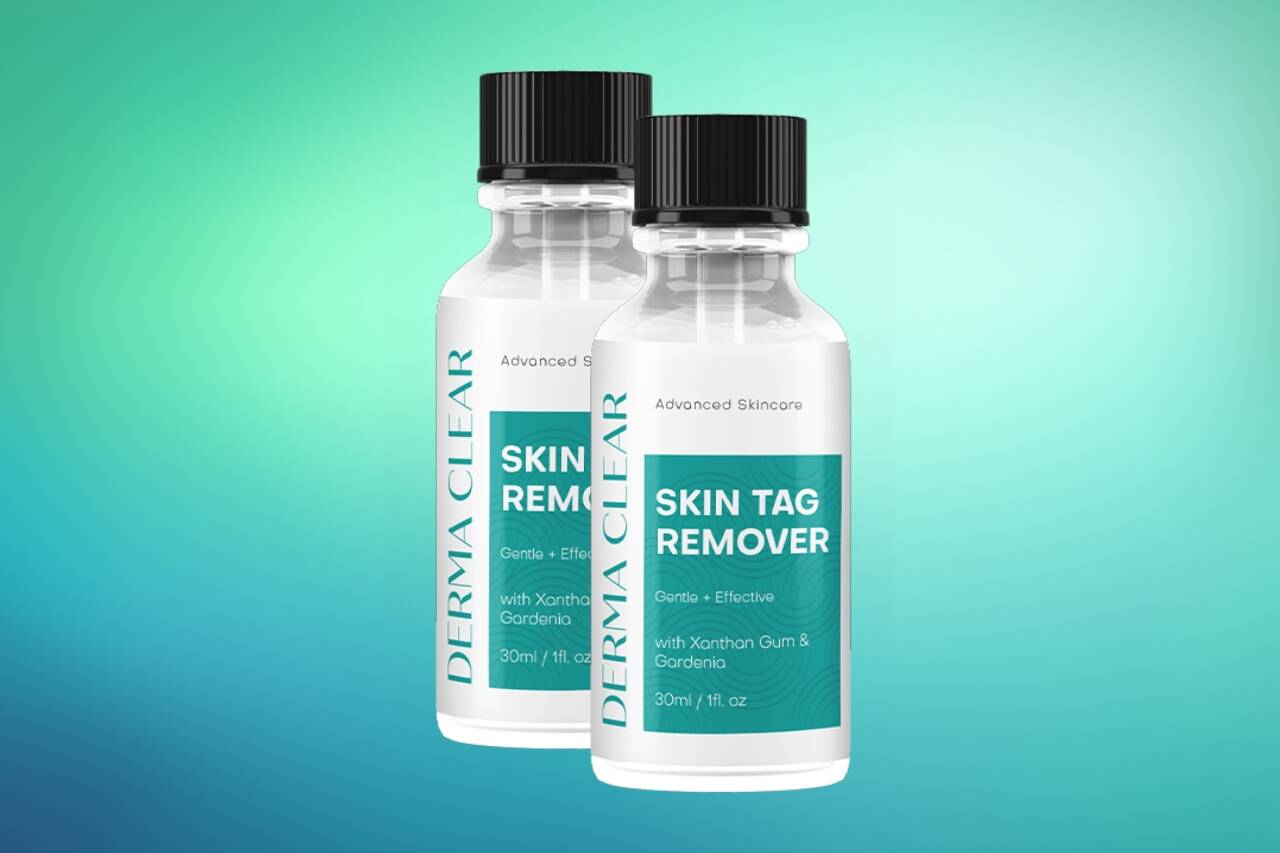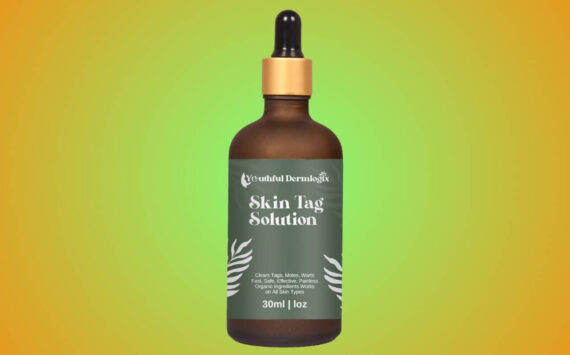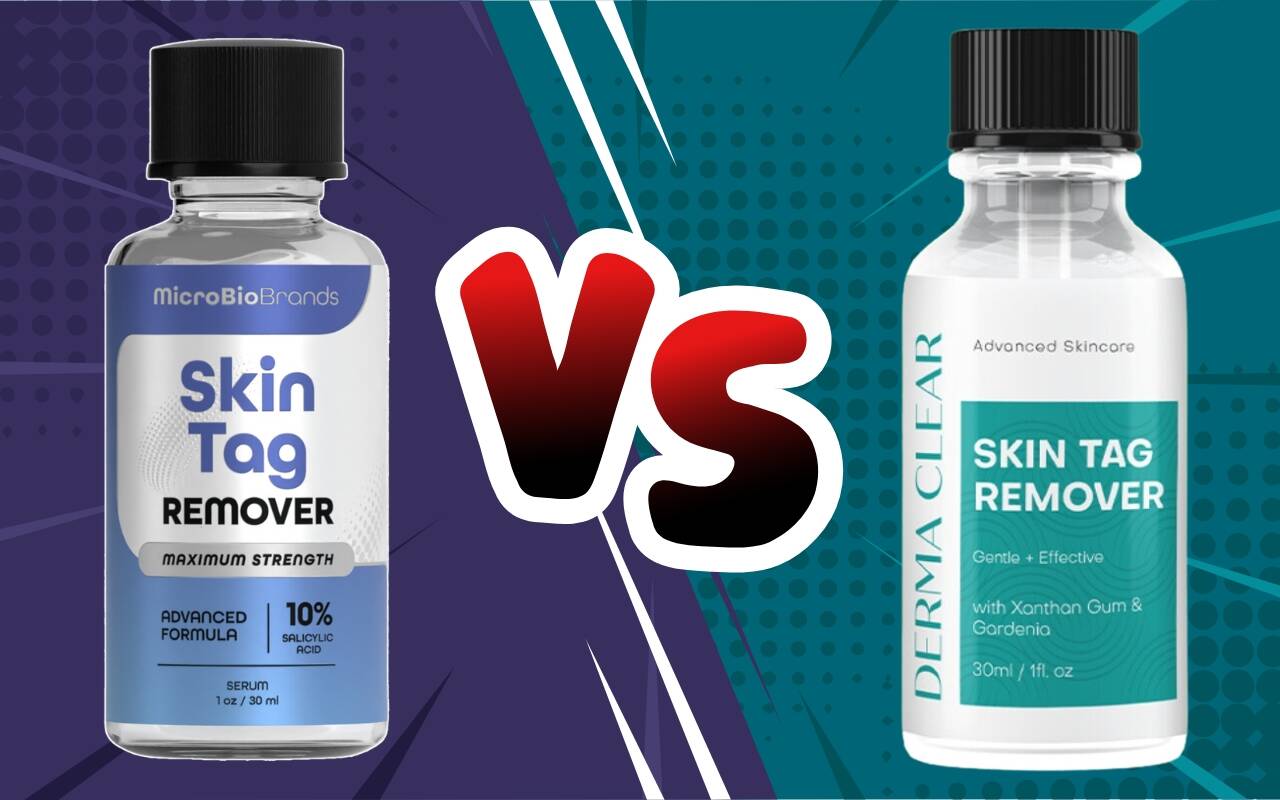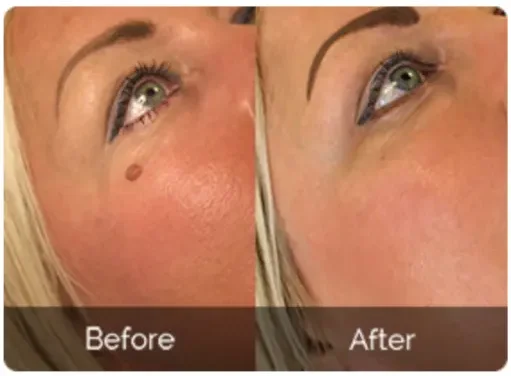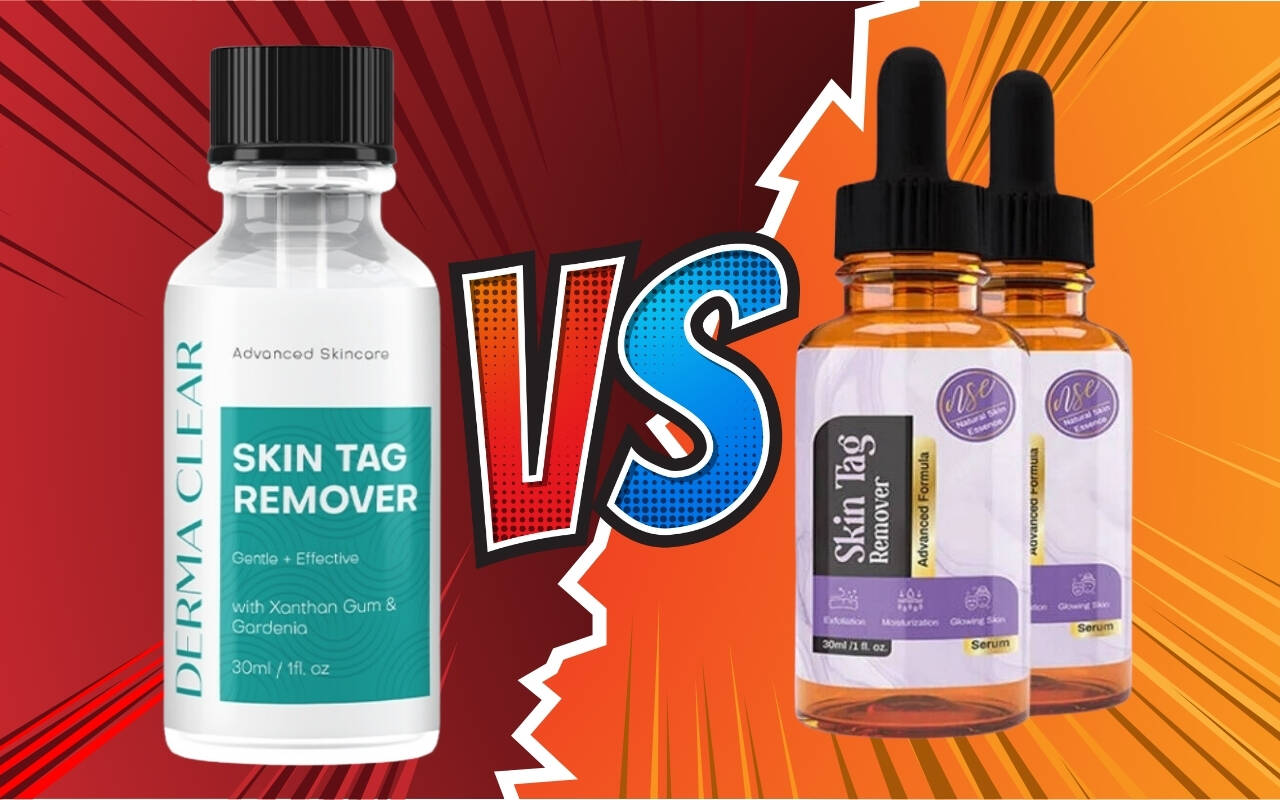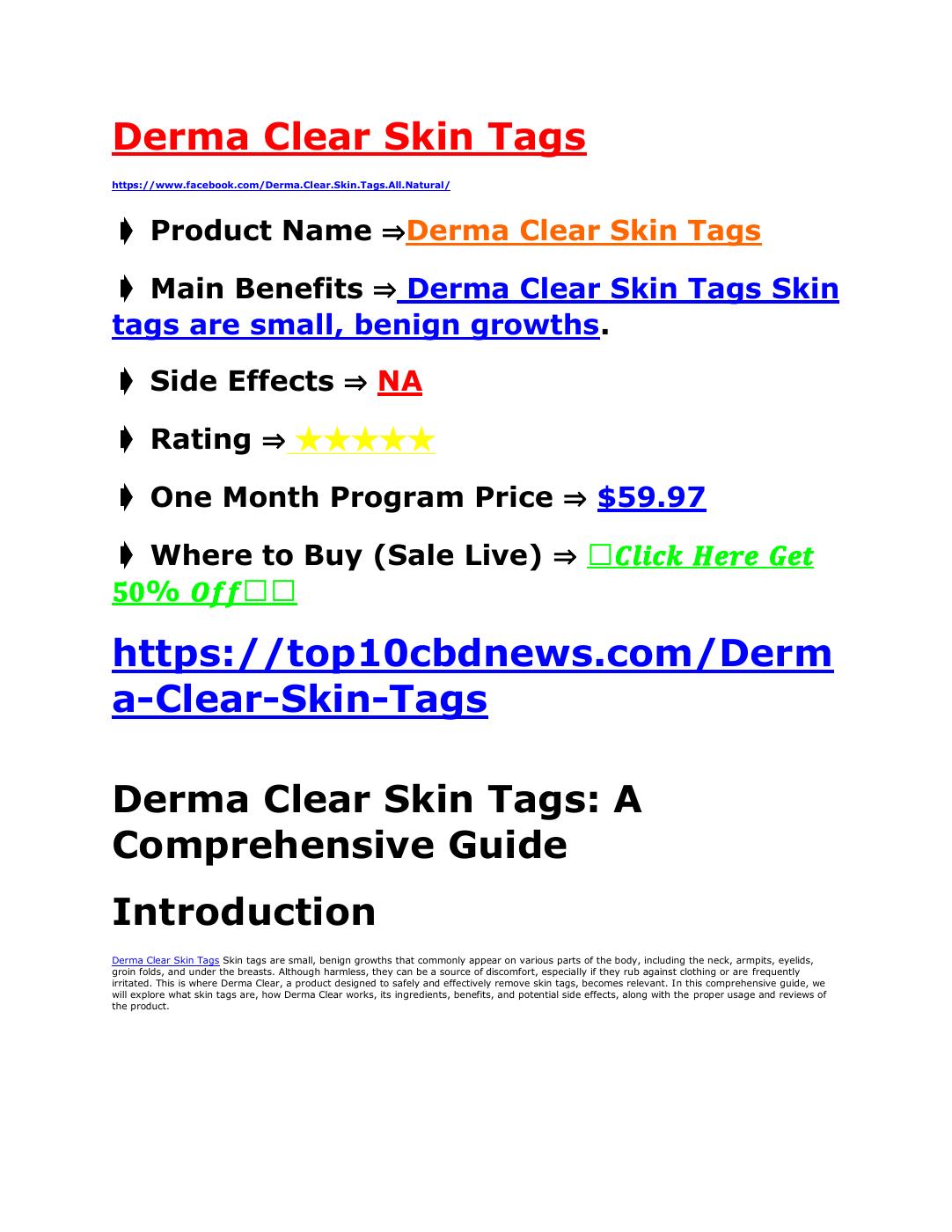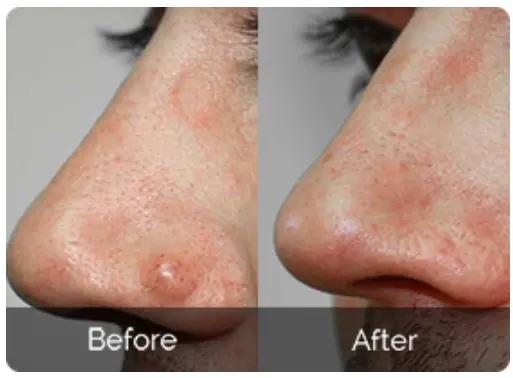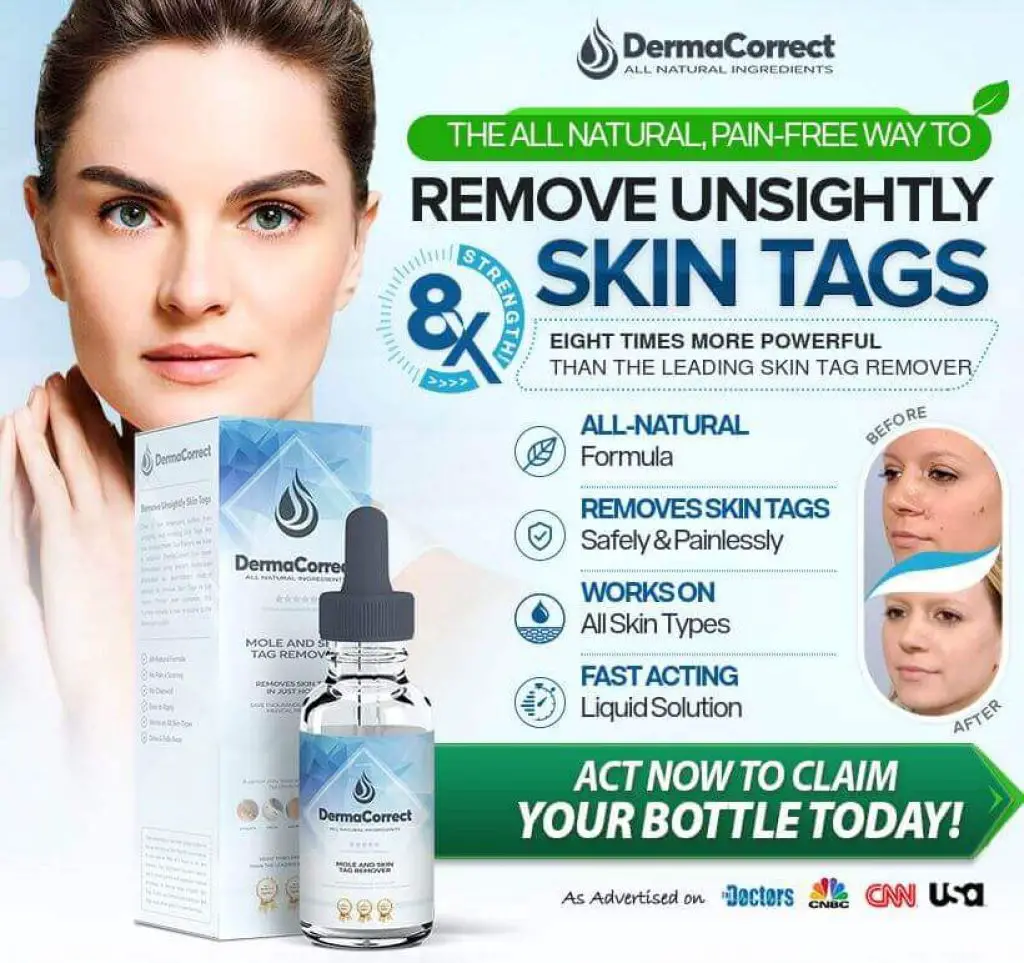Does Derma Clear Skin Tag Remover Really Work
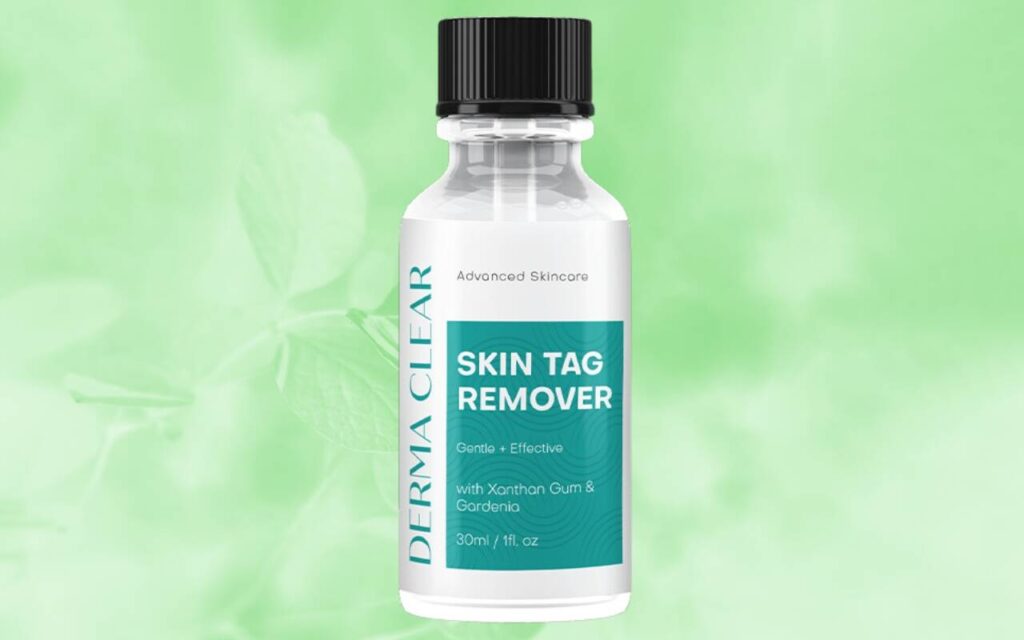
Imagine scrolling through your social media feed, a never-ending stream of perfectly filtered faces. Then, you catch your reflection in the screen – a tiny skin tag, seemingly magnified under the digital gaze. It's a common sight, a small imperfection that suddenly feels like a glaring flaw. This is where products like Derma Clear Skin Tag Remover enter the picture, promising a simple solution to a widespread concern.
The question on everyone's mind is: Does Derma Clear Skin Tag Remover actually work? This article delves into the details, examining the product's ingredients, exploring user experiences, and consulting expert opinions to provide a balanced perspective on its efficacy and safety. We aim to offer clarity in a market saturated with quick fixes, helping you make an informed decision about whether this product is right for you.
The Rise of Skin Tag Removers
Skin tags are small, benign growths that commonly appear on the neck, armpits, eyelids, and groin. They are typically harmless but can be bothersome for cosmetic reasons or due to irritation from clothing.
The desire to remove these small imperfections has fueled a booming market for over-the-counter (OTC) skin tag removers. These products often promise a painless and convenient alternative to professional medical procedures like cryotherapy (freezing), surgical excision, or electrocautery.
Understanding Derma Clear Skin Tag Remover
Derma Clear Skin Tag Remover, like many similar products, claims to eliminate skin tags through topical application. Its formulation typically includes ingredients known for their exfoliating or drying properties.
Salicylic acid, a common ingredient, is a beta-hydroxy acid (BHA) that works by dissolving the protein that makes up the skin tag. Some formulations also contain tea tree oil, known for its antiseptic properties, or other herbal extracts marketed for their skin-clearing benefits.
Analyzing the Ingredients
The effectiveness of Derma Clear Skin Tag Remover hinges on the concentration and delivery of its active ingredients. Salicylic acid, for example, is effective at higher concentrations, but may cause irritation or inflammation if used improperly or on sensitive skin.
Tea tree oil, while generally considered safe for topical use, can also cause allergic reactions in some individuals. It's crucial to review the full ingredient list and understand potential sensitivities before using any skin tag remover.
Many OTC skin tag removers rely on a gradual process of drying out the skin tag, leading to its eventual shedding. This process can take several weeks, and the effectiveness can vary depending on the size and location of the skin tag.
What Users Are Saying
Online reviews of Derma Clear Skin Tag Remover are mixed, reflecting the varied experiences of users. Some report successful removal of small skin tags with consistent application over several weeks.
Others report little to no effect, even after prolonged use. Some users also mention experiencing skin irritation, redness, or dryness around the application site.
It's important to approach online reviews with a critical eye, considering that individual skin types and tag characteristics can influence results. A product that works for one person may not work for another.
Expert Opinions and Medical Perspectives
Dermatologists generally recommend professional removal methods for skin tags, as they offer a faster, more predictable, and safer outcome. Procedures like cryotherapy or surgical excision allow for precise removal with minimal risk of scarring.
Dr. Emily Carter, a board-certified dermatologist, explains, "While OTC skin tag removers may be effective for some small tags, they often lack the precision of professional treatments. There's also a risk of misdiagnosing the growth. What appears to be a skin tag could be something more serious, like a mole or even a skin cancer."
According to the American Academy of Dermatology (AAD), it's essential to have any new or changing skin growths examined by a dermatologist to rule out malignancy. Self-treating a potentially cancerous growth could delay diagnosis and treatment.
Potential Risks and Side Effects
Using Derma Clear Skin Tag Remover, or any OTC skin tag remover, carries potential risks. These risks include skin irritation, allergic reactions, scarring, and infection.
Applying the product to areas with sensitive skin, such as the eyelids, can be particularly problematic. If the skin tag is located near the eyes, it's crucial to consult with a dermatologist or ophthalmologist for safe removal.
Individuals with certain medical conditions, such as diabetes or compromised immune systems, should avoid using OTC skin tag removers without consulting their doctor. These conditions can impair wound healing and increase the risk of complications.
Alternatives to OTC Removers
If you're concerned about a skin tag, the safest and most effective approach is to consult with a dermatologist. They can accurately diagnose the growth and recommend the most appropriate treatment method.
Professional removal options include cryotherapy, which involves freezing the skin tag with liquid nitrogen; surgical excision, which involves cutting off the skin tag with a scalpel; and electrocautery, which uses heat to destroy the skin tag.
These procedures are typically quick, relatively painless, and performed in a doctor's office. They offer a higher success rate and a lower risk of complications compared to OTC remedies.
Making an Informed Decision
Before using Derma Clear Skin Tag Remover or any similar product, carefully consider the potential benefits and risks. Read online reviews with a critical eye and be wary of exaggerated claims.
If you have any doubts about the nature of the growth or concerns about potential side effects, consult with a dermatologist. A professional evaluation can provide peace of mind and ensure that you receive the most appropriate treatment.
Ultimately, the decision of whether to use an OTC skin tag remover is a personal one. However, prioritizing safety and seeking professional guidance are essential steps in ensuring a positive outcome.
Conclusion: A Balanced Perspective
While Derma Clear Skin Tag Remover may offer a convenient and potentially effective solution for some small skin tags, it's not a guaranteed fix for everyone. The product's effectiveness varies depending on individual factors, and potential risks should be carefully considered.
The allure of a quick and easy solution is understandable, but prioritizing safety and seeking expert advice is crucial. Consulting with a dermatologist ensures accurate diagnosis, appropriate treatment, and peace of mind.
In the pursuit of clear skin, remember that professional guidance and informed decisions are the most reliable paths to achieving desired results. Sometimes, the best approach involves seeking expert care rather than relying solely on over-the-counter remedies.
